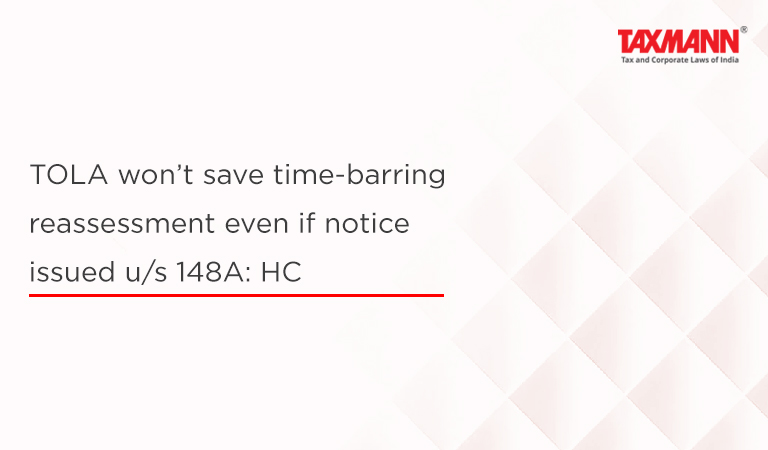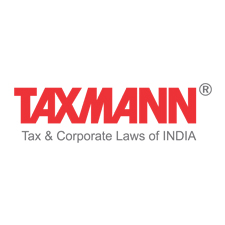TOLA won’t save time-barring reassessment even if notice issued u/s 148A: HC
- Blog|News|Income Tax|
- 2 Min Read
- By Nidhi Rai
- |
- Last Updated on 1 March, 2023

Case Details: Rajeev Bansal v. Union of India - [2023] 147 taxmann.com 549 (Allahabad)
Judiciary and Counsel Details
-
- Vipin Chandra Dixit & Sunita Agarwal, JJ.
- Abhinav Mehrotra & Satya Vrata Mehrotra for the Petitioner.
- A.S.G.I., Gaurav Mahajan, Manu Ghildyal & Sudarshan Singh for the Respondent.
Facts of the Case
The instant writ petition was filed against the order passed under section 148A(d) and the consequential notices issued under Section 148. The disputed notices were issued during the period between 01-04-2021 to 30-06-2021 and the dispute pertains to Assessment Year 2013-14 to 2017-18.
The Supreme Court of India in the case of Ashish Agarwal [2022] 138 taxmann.com 64 (SC) has adjudicated the validity of the reassessment notices issued by the Assessing Officers during the period 01-04-2021 to 30-06-2021 under the old provisions. It was held that the reassessment notices issued under old provisions shall be deemed as show-cause notices issued under new provisions of Section 148A.
The assessee raised the question of whether the relaxation law under the taxation and Other Laws (Relaxation & Amendment of Certain Provisions) Act’ (TOLA)’ 2020 would govern the time frame prescribed under the first proviso to Section 149 as inserted by the Finance Act 2021.
High Court Held
The High Court held that there is no specific clause in the Finance Act, 2021 to save the provisions of the TOLA granting extensions in the time limit under the unamended Act, or the notifications issued thereunder on or before 31.3.2021.
The Supreme Court’s observations, in the Ashish Agarwal case, cannot be interpreted as granting extensions under the unamended Section 149 by applying TOLA, 2020 to reassessment notices for past assessment years that were not issued before March 31, 2021. These notices cannot be considered “extended reassessment notices” and allowed to travel back in time to their original date of issuance. Instead, the amended Section 149 should be applied as interpreted by the revenue in Para 6.1 of the CBDT Instructions dated 11.5.2022.
Thus, an extension in time as per the plain provision of clause (A)(a)(b) of the Notification No. 38 dated 27.4.2021 ignoring an Explanation to it, may be granted as and when the said extensions are applicable for issuance of notice under Section 148 as per the time limit specified in Section 149 or sanctions under Section 151 of the Income Tax Act as amended by the Finance Act, 2021, after making all compliances, as required under the Income Tax Act, 1961.
The reassessment proceedings initiated with notices under Section 148 issued between April 1, 2021, and June 30, 2021, cannot benefit from the relaxation or extension provided under the TOLA until March 30, 2021. Moreover, the time limit specified in Section 149(1)(b) (as amended from April 1, 2021) cannot be extended by such relaxation granted from March 30, 2020, onwards to the revenue.
In respect of the proceedings where the first proviso to Section 149(1)(b) is attracted, the benefit of TOLA 2020 will not be available to the revenue. In other words, the relaxation law under TOLA 2020 would not govern the time frame prescribed under the first proviso to Section 149 as inserted by the Finance Act 2021.
Disclaimer: The content/information published on the website is only for general information of the user and shall not be construed as legal advice. While the Taxmann has exercised reasonable efforts to ensure the veracity of information/content published, Taxmann shall be under no liability in any manner whatsoever for incorrect information, if any.




 CA | CS | CMA
CA | CS | CMA
